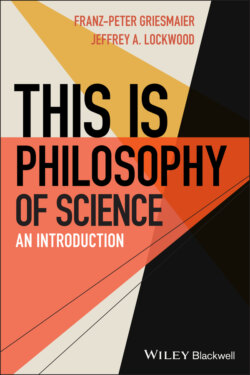Читать книгу This is Philosophy of Science - Franz-Peter Griesmaier - Страница 48
Annotated Bibliography
ОглавлениеVincenzo Crupi, 2020, “Confirmation,” The Stanford Encyclopedia pf Philosophy. Available at https://plato.stanford.edu/entries/confirmation A detailed presentation of many of the technical problems surrounding the notion of confirmation. It also includes many more details on Hempel’s model.
Brandon Fitelson and James Hawthorne, 2010, “How Bayesian Confirmation Theory Handles the Paradox of the Ravens,” in E. Eells and James H. Fetzer (eds.), The Place of Probability in Science, Boston Studies in the Philosophy of Science 284. Available at http://fitelson.org/ravens.pdf. A thorough discussion of the raven paradox from the perspective of Bayesian confirmation theory, arguing that emphasizing the important difference between no confirmation at all and a small amount of confirmation resolves the paradox.
Carl Gustav Hempel, 1945, “Studies in the Theory of Confirmation,” Mind 54(213): 1–26 and 54(214): 97–121. In this groundbreaking paper, Hempel develops his model of confirmation and introduces the Raven Paradox.
Karl Popper, 1934/1959, The Logic of Scientific Discovery. London and New York: Routledge 2002. The classic statement of falsificationism, this is one of the most influential books in the philosophy of science. Popper argues for a decisive break with attempts to develop a model of confirmation, replacing it with a process involving bold conjectures and severe testing.
Willard van Orman Quine, 1951, “Two Dogmas of Empiricism,” Philosophical Review 60: 20–43. Among other important contributions, this seminal essay introduces the idea of confirmation holism.
